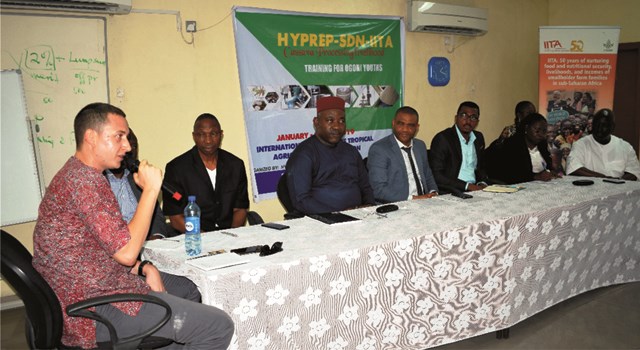Niger Delta
Ahoada West Staff Audit Followed Due Process – LG Boss

As the deadline issued by The National Union of Local Government Employees (NULGE) to the authorities of Ahoada West Local Government Area expires tomorrow for declaration of an industrial dispute, the council Chairman, Hon. Hope Ikiriko has insisted that the staff verification exercise which culminated in the suspension of the salary of over 200 council staff followed due process.
Giving the clarification last Saturday in an interview with The Tide, Hon. Ikiriko affirmed that the staff audit exercise was thorough, painstaking and in consultation with all stakeholders including NULGE, council staff and the authorities of the council which held several meetings before the exercise.
The council boss however, said that the NULGE’s ultimatum was unnecessary as “we are still favourably disposed to amicable resolution of the matter. Our doors are still open for dialogue”.
“Ahoada West wage bill is very high and outrageous with little or no internally generated revenue and hence, we need to plug all loopholes, recoup funds and ensure that development gets to all nooks and crannies of the area as well as maintain staff welfare”, he declared.
He disclosed that prior to his assumption of office, the council did not have a nominal roll, nor the staff have staff identity cards, a development which encouraged ghost workers, corruption and fraud.
He explained that the staff audit exercise was done in the best interest of all, especially those affected to enable them channel their productive lives to other ventures now that they are still active and productive rather than wait for pension that would never come due to irregular employment.
The council boss called for understanding from NULGE and affected staff as the verification exercise remains the only viable option for the council to move to the next level of development.
On the forthcoming governorship and state House of Assembly elections, Hon. Ikiriko called for total disengagement of the military from elections, noting that the experience of the presidential and national Assembly election was very unfortunate, embarrassing and a national shame.
He cautioned the Army to steer clear from politics as the electorate might resist further attempt to subvert the electoral process.
Goodluck Ukwe
Niger Delta
A’Ibom Unveils Industrial Park For Manufacturing

Niger Delta
Oborevwori Weeps over Senator’s Death

Niger Delta
Nasarawa D’Gov, Others Condole Diri, Ewhrudjakpo Family

-

 Sports3 days ago
Sports3 days agoAFCON ’25: Osimhen Not Worried By Yekini Comparison, Pressure
-

 Politics3 days ago
Politics3 days agoYou Have No Power To Drop Me, Ekiti PDP Candidate Tells INEC
-

 Sports3 days ago
Sports3 days agoOgoni Nation Cup : Coach Praise Players In spite 2-0 Loss
-

 Sports3 days ago
Sports3 days agoRemo Stars set for Ikenne return
-

 Sports3 days ago
Sports3 days agoSoname Calls For NPFL referees demotion
-

 Sports3 days ago
Sports3 days agoChelsea Set To Part Ways With Maresca?
-

 Sports3 days ago
Sports3 days agoTackling age falsification among athletes In Nigeria
-

 Business3 days ago
Business3 days agoKALCCIMA PROMISES KALABARI ECONOMIC GROWTH, INAUGURATES NEW EXECUTIVES

